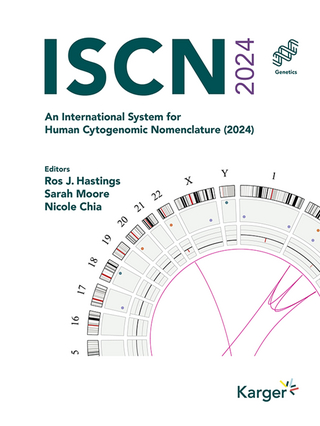
Heterogeneity in Statistical Genetics
Springer International Publishing (Verlag)
9783030611200 (ISBN)
Heterogeneity, or mixtures, are ubiquitous in genetics. Even for data as simple as mono-genic diseases, populations are a mixture of affected and unaffected individuals. Still, most statistical genetic association analyses, designed to map genes for diseases and other genetic traits, ignore this phenomenon.
In this book, we document methods that incorporate heterogeneity into the design and analysis of genetic and genomic association data. Among the key qualities of our developed statistics is that they include mixture parameters as part of the statistic, a unique component for tests of association. A critical feature of this work is the inclusion of at least one heterogeneity parameter when performing statistical power and sample size calculations for tests of genetic association.
We anticipate that this book will be useful to researchers who want to estimate heterogeneity in their data, develop or apply genetic association statistics where heterogeneity exists, and accurately evaluate statistical power and sample size for genetic association through the application of robust experimental design.lt;b>Derek Gordon is an associate professor in the Department of Genetics at Rutgers University. He currently works in the field of statistical genetics. His primary interests are in developing novel methods that localize putative disease loci. More specifically, his research focus deals with multiple forms of heterogeneity (or mixtures). He works on locus heterogeneity, mixtures of longitudinal data phenotypes, classification of phenotypes, genotypes, and genomic data (e.g, next-generation sequencing (NGS), copy number), and mixtures for survival analysis. He also collaborates with applied geneticists, physicians, and other healthcare professionals to perform disease localization studies. Examples of phenotypes on which he has worked include: adolescent idiopathic scoliosis (AIS); late-onset Alzheimer's disease; hair and skin disorders; Tourette syndrome, schizophrenia; and other forms of mental illness.
Stephen J. Finch is an applied statistician whose major areas of interest are statistical genetic epidemiology and applied longitudinal data analysis. Statistical genetic epidemiology studies the genetics of complex human traits, such as bipolar disorder or schizophrenia. One of the major longitudinal studies, with faculty in the Stony Brook Department of Psychiatry, concerns the effects of medications on the course of mental illnesses.
Wonkuk Kim is an assistant professor in the Department of Mathematics and Statistics at the University of South Florida. He received his Ph.D. in Applied Mathematics and Statistics at Stony Brook University. His research interests include mixture models, statistical genetics, survival analysis, data mining.
1. Introduction to heterogeneity in statistical genetics.- 2. Overview of genomic heterogeneity in statistical genetics.- 3. Phenotypic heterogeneity.- 4. Association tests allowing for heterogeneity.- 5. Designing genetic linkage and association studies that maintain desired statistical power in the presence of mixtures.- 6. Threshold-selected quantitative trait loci and pleiotropy.- Index.
"This is one of the best books elucidating statistical genetics with solid mathematical foundation and biological background." (John Tuhao Chen, Mathematical Reviews, July, 2022)
“This is one of the best books elucidating statistical genetics with solid mathematical foundation and biological background.” (John Tuhao Chen, Mathematical Reviews, July, 2022)
| Erscheinungsdatum | 18.12.2020 |
|---|---|
| Reihe/Serie | Statistics for Biology and Health |
| Zusatzinfo | XX, 352 p. 41 illus., 26 illus. in color. |
| Verlagsort | Cham |
| Sprache | englisch |
| Maße | 155 x 235 mm |
| Gewicht | 677 g |
| Themenwelt | Mathematik / Informatik ► Mathematik ► Statistik |
| Mathematik / Informatik ► Mathematik ► Wahrscheinlichkeit / Kombinatorik | |
| Studium ► 2. Studienabschnitt (Klinik) ► Humangenetik | |
| Naturwissenschaften ► Biologie ► Genetik / Molekularbiologie | |
| Schlagworte | Biostatistics • Genomic Classification • Genomic Misclassification • Heterogeneity • Longitudinal Phenotype • mixed models • Mixture Models • Next-generation sequencing • Phenotype Classification • Phenotype Data • Phenotype Misclassification • Statistical genetics |
| ISBN-13 | 9783030611200 / 9783030611200 |
| Zustand | Neuware |
| Informationen gemäß Produktsicherheitsverordnung (GPSR) | |
| Haben Sie eine Frage zum Produkt? |
aus dem Bereich


